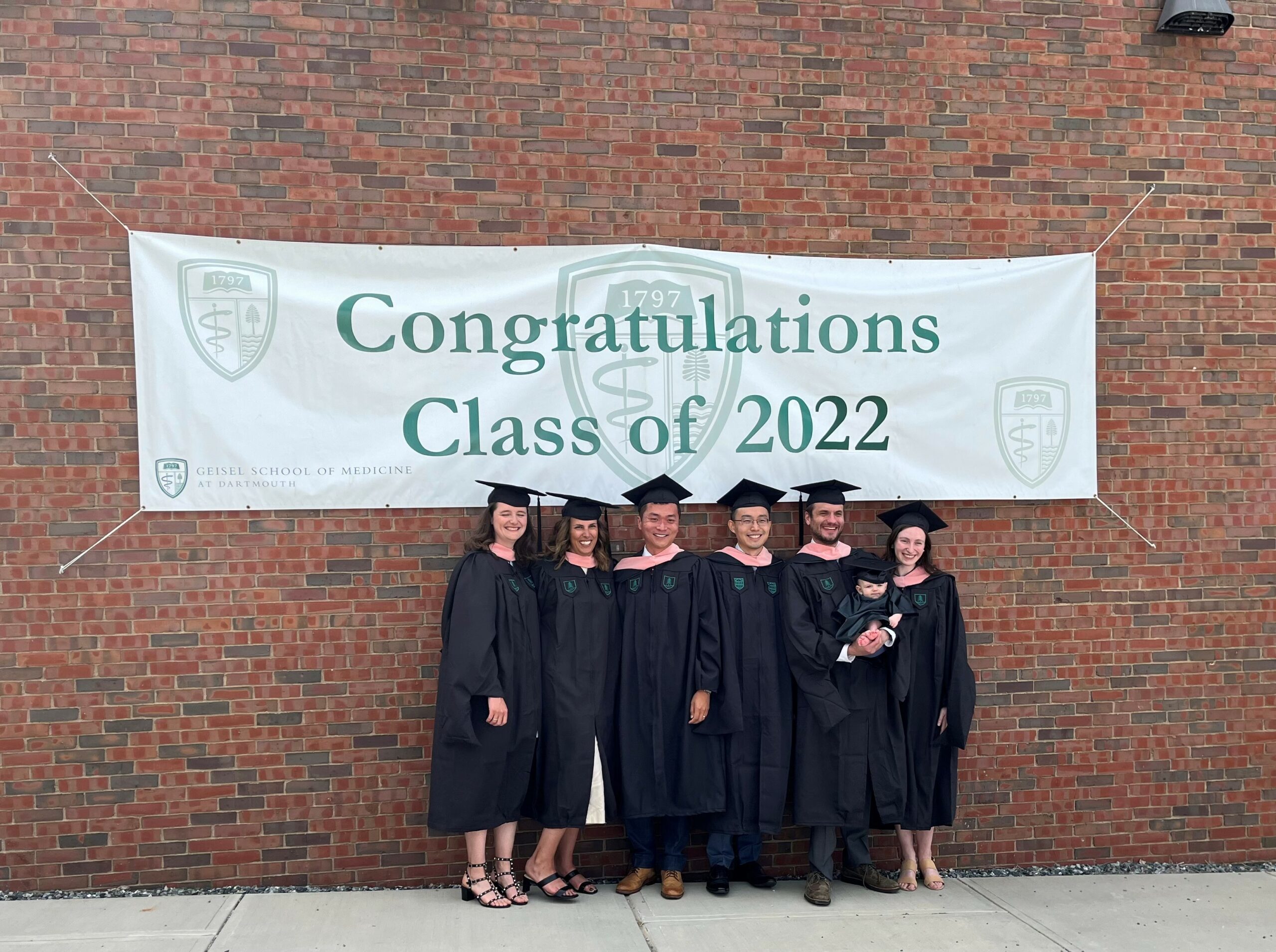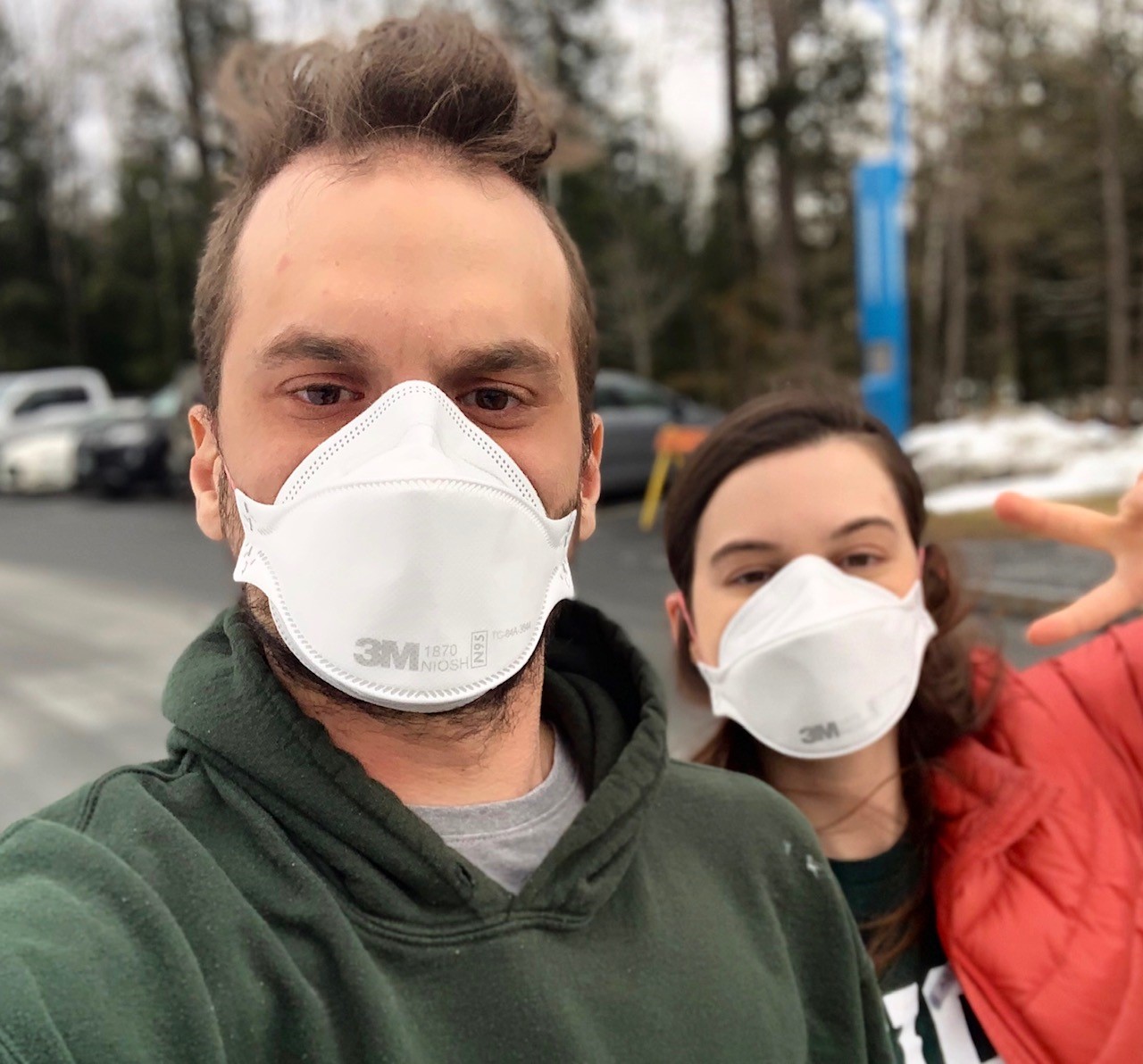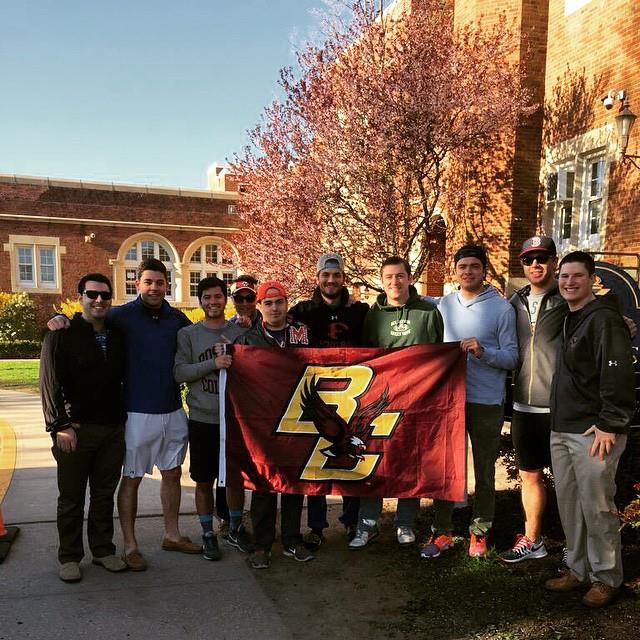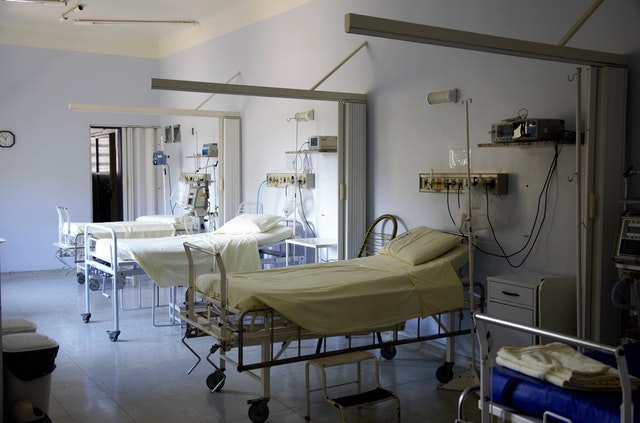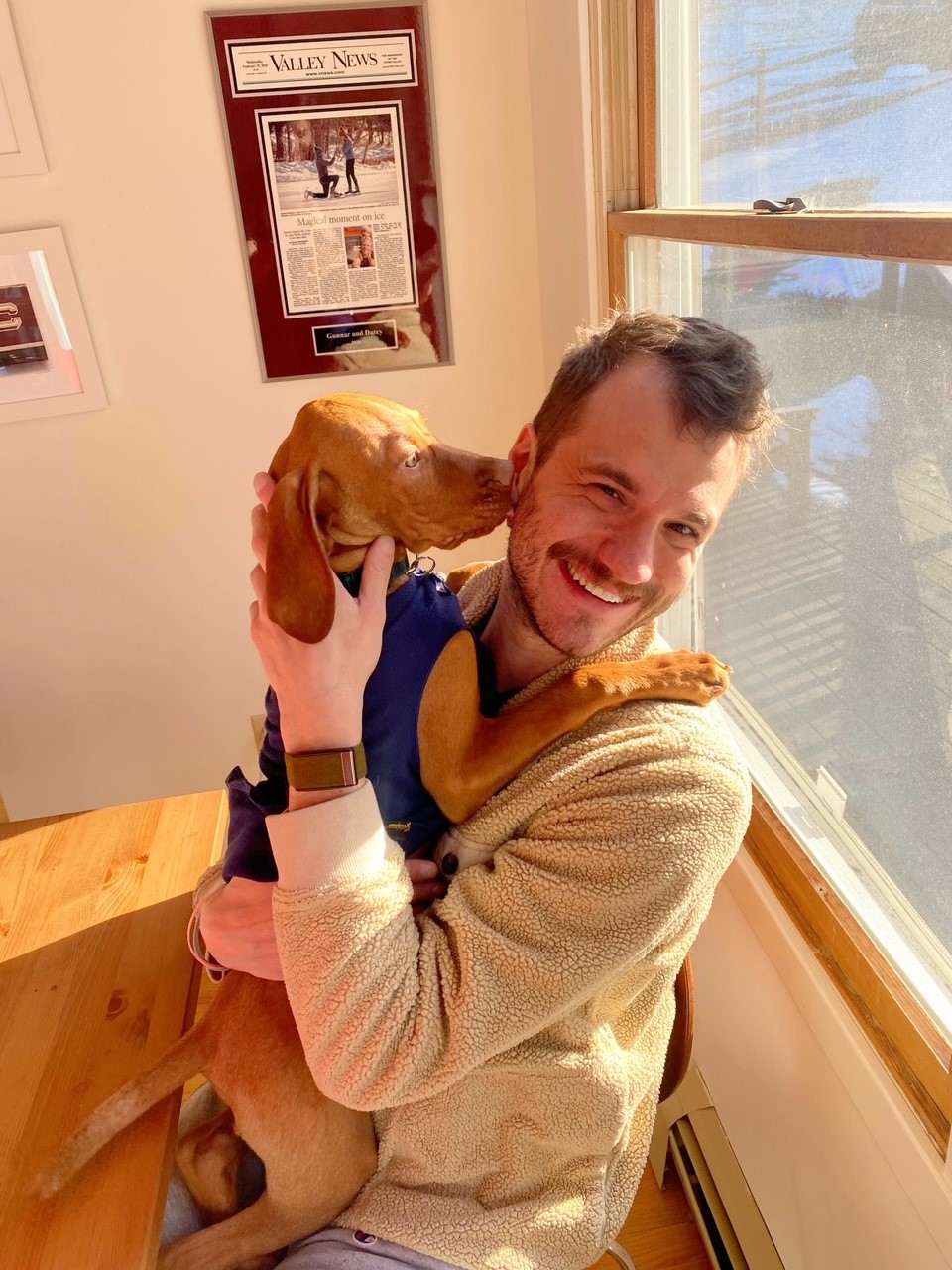I blinked and it was over. It was three years, two degrees, a marriage, and a baby. My time in grad school was, of course, defined (mostly) by the pandemic, but it also proved to me that “I could do it.”
…I need to eyeroll a little because I graduated twice…
Way back in 2018, Darcy and I were stuck in traffic on the Jersey Turnpike returning home from a road trip that took us to Gettysburg and DC. I had been on the study drug that eventually turned into Trikafta for several months at that point. Some time during our stop and go slog through Southern Jersey, she asked me if considered what would be next for me in my life? I had just broken the cycle of repeated pulmonary exacerbation that had plagued me for well over five years. In those days, I was on and off IV PICC lines just about every other month, if not more frequently. People who knew me then would tell you that I used to talk (constantly) about my time in college. Really, my college memories were all I had.
I can’t remember exactly what I said to Darcy, and truthfully, I hadn’t ever considered what was next for me (and us), but somehow, we landed on the idea of going back to school. I had always wanted to. In fact, when I was junior/senior in college, I took the time to study for the LSAT and prepare for law school (I really have no idea what I was thinking…). Of course, my health had different plans for me.
Darcy, whose dad went to business school at the University of Michigan, encouraged me to consider going to get an M.B.A. Surely there were programs focused on nonprofit management, strategy, or social impact, right? Not totally convinced business school was the place for me, I looked at programs across the board, including, for a hot second, M.F.A’s in creative writing. Eventually I realized that an M.F.A and some others probably didn’t suit me, so M.B.A. it was. And so I was off…
If you’re looking for some bigger story about my desire for an M.B.A. you’re not going to get it.
Looking back, I was cavalier about the idea. I took maybe three or four days to consider the types of programs I wanted to apply to, and it was Darcy (again!), who suggested I consider Dartmouth’s business school among a few others.
I didn’t share my plans for grad school with anyone except a handful of people in my true inner circle of friends and family. I didn’t want to hype up expectations for myself.
The choice to pursue graduate education was one that served a few purposes. Primarily, I lost my early twenties to CF and with it the opportunity to establish a career geared towards long term goals. It might seem like I was doing a lot back then (especially if you have followed my blog since the beginning), and I certainly did have my hands in a lot of different projects for a long time, but the long-term stability that people crave with their career choices was very much absent. I wasn’t picking up management and technical skills like my friends from college were, and that frustrated me beyond words. A lot of my career learnings were self-taught with a few mentors here or there, which comes with its own merits, but because my health required so much of my attention and effort, certain things in my life like career planning had to take a back seat. This is a common tale for any CF family.
Second, and maybe this is the more important point, I wanted to prove to myself that I could do it. I had suffered so much by the end of my college days that I remember seeing my graduation ceremony as the finish line and really nothing more beyond that. I knew I was in no condition to go off to law school or seek the kind of job I wanted. I was pretty much forced to make choices that would extend my life. The ultimate choice to move home, one that was never said out loud, but rather assumed by me and my family, was arguably the most defining moment of my life up until that point. I was explicitly admitting to myself that I couldn’t do “it” on my own.
In going to grad school, I had to learn to overcome the intense fear that I was riddled with after surviving my 22nd, 23rd and 24th years of life.
But that all started to change when I first visited Dartmouth. Somewhat hilariously when I first stepped foot on campus for my admissions interview, I was greeted with an email from a different business school that said my application was rejected. The email from that school in Cambridge, MA certainly gave me all the confidence in the world…
But then I walked through the doors of Tuck Hall and immediately felt like I was home. It was crowded, it was busy, it looked like controlled chaos as students ran to and from classes and meetings. It was exactly what I was craving. There was also six inches of snow on the ground, and it was a bone chilling 5 degrees. I wanted to be nowhere else.
When I was finally accepted into Dartmouth’s MBA/MPH program a few months later, my mom cried happy tears, while my dad tried to convince me not to go, which included near incessant reminders of how much I’d have to pay in tuition. The number was daunting, and there wasn’t going to be any help from home on the cost. It wasn’t that my dad didn’t think I could do it or wouldn’t fit in, but rather he couldn’t understand why I would want to trade in all this new health I suddenly had for a couple more years of school.
His arguments couldn’t displace my insatiable craving for technical and life training.
Despite my hunger for a springboard, on the first day of school back in 2019 I felt tense, afraid, and excited. I still hadn’t overcome my fear of what happened to me in college, but there was no turning back at that point.
I decided to open up about my fears for myself and signed up for a program called TuckTalks where students of all kinds of backgrounds are effectively given the opportunity to give a TED-style talk to the entire business school about any topic they want. I wanted to talk about CF, losing Lea, the crushing illness I felt for my early twenties and how a new drug allowed me to go to grad school.
I’ve given a lot of talks in my life, and while Lea’s eulogy was the most difficult, the TuckTalk was the most profound.
It was profound because of what I discovered about myself and others living with chronic disease.
I concluded…
All I had wanted in the years between graduating from BC and the start of the trial was a chance to live… a chance to wake up each day feeling like I could contribute to society. I desperately wanted some semblance of independence.
…
I spend a lot of time looking back over my life to help inform future decisions. One lesson that I carry with me more so than most is the value I discovered in survival… The patient’s voice is seemingly absent across the entire sector. We are seen as passive benefactors of technology, medical practice and fundamental policy decisions. We are denied seats at the table. We do not get to make decisions…. I want the world to respect patient opinions.
It took two months of my three-year grad school journey to discover who I was and what I wanted from my life. It was remarkable.
I ended up delivering the TuckTalk twice. First was in front of the business school where I welcome the entire class to my fight against cystic fibrosis, and then a second time at a recruiting event; Tuck’s Women in Business weekend. The second time proved to be more impactful because my dad was in town visiting me and Darcy for the weekend. The student organizers allowed my dad to come on campus where I gave my talk. He and I were the only two men in the room! When he got to see me in action, he immediately changed his mind about me going off to school with my newfound health.
Then several months later the pandemic happened. We all know how disruptive it was, and it doesn’t need to be said that the quality of my education was certainly impacted in some way, but it was during that time when my family took shape.
Darcy and I welcomed Blitzen to our family, then we got married, and then, of course, Kaspar joined us.
I never could have imagined how my life (and all our lives) would change during my time in grad school, but never in a million years did I ever think I would be able to start a family, but it happened.
This isn’t a reflection about the chronological order of events of the last three years of my life, nor is it some recruiting pitch for grad school, but for me it was what I needed when I needed it. Beyond anything that I learned, I had to prove to myself that I could live again. The ride was painfully difficult, but extraordinarily rewarding. It was, at times, terrifying, but also gloriously amazing.
I look back at my life now and can’t help but see myself without ever having moved to New Hampshire to learn who I could become as a person, father, husband, and student. I loved my time up here and I’m sad it’s at an end, but I no longer feel the fear of facing a new chapter liked I used to. Instead, I crave this next part of my life with my family by my side. It’s because of them, all of them, and my classmates and friends, too, that I can’t help but look forward. It’s true what they say at Dartmouth… this granite of New Hampshire will always be part of me. It’s my time in this state that will forever alter my life course. I’m so thankful.

